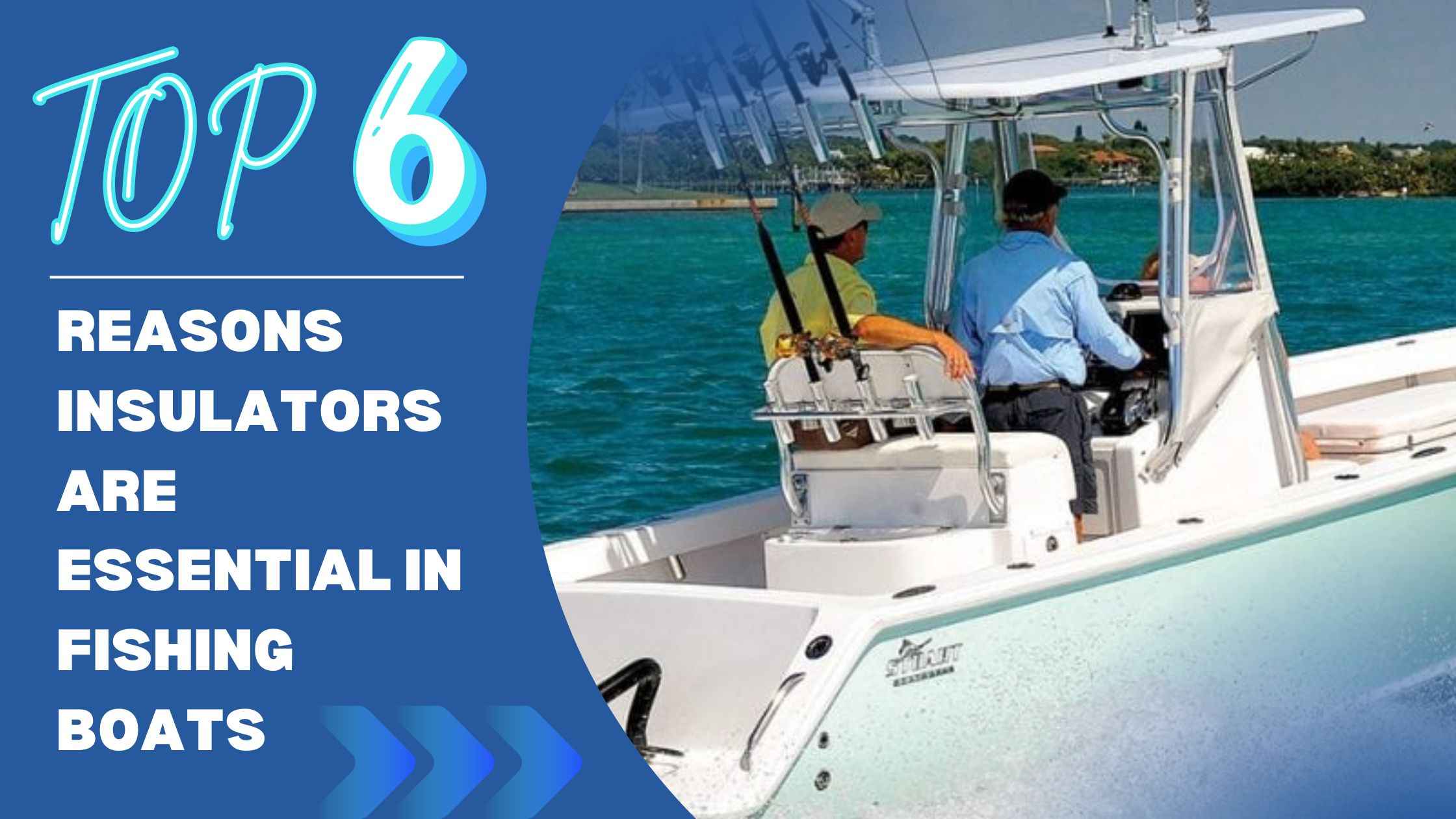When you think of fishing boats, insulators might not be the first component that comes to mind, but they play a vital role in both safety and efficiency. Whether you’re trolling the lake at dawn or heading offshore for deep-sea action, understanding why insulators are essential on fishing boats can help you make informed decisions and avoid serious risks on the water.
In this guide, we’ll break down the top six reasons why boat insulation systems are indispensable and explain how they contribute to performance, safety, and durability.
1. Preventing Electrical Short Circuits
How insulators protect your boat’s electrical system
Fishing boats rely on complex electrical systems: sonar, GPS, trolling motors, bilge pumps, and more. Without proper insulation, moisture and saltwater exposure can easily lead to short circuits, causing equipment failure or even fires.
Marine-grade insulators shield electrical wires and connections, ensuring circuits stay dry and intact even in the harshest maritime environments.
2. Enhancing Safety Against Electrocution
Why insulation is key to personal safety
Electric shocks on boats can be deadly—especially in saltwater. Insulators prevent current leakage, which could otherwise reach metal surfaces or the water surrounding your boat.
Rubber grommets, insulated terminal blocks, and shielded connectors are common safety components that reduce electrocution risks, especially when children or pets are on board.
3. Improving Marine Electronics Performance
Get the most out of your onboard gear
From fish finders to autopilot systems, every device on a fishing boat depends on stable power. Poor insulation can cause voltage drops or interference, especially with sensitive sonar and navigation tools.
High-quality insulators minimize electromagnetic interference (EMI) and radio-frequency interference (RFI), ensuring your electronics perform reliably.
4. Reducing Corrosion and Moisture Damage
Saltwater is a silent killer—here’s how insulation helps
Even minimal moisture can accelerate electrolysis and corrosion in boats. Insulators act as barriers, keeping water from seeping into exposed wires or terminals.
Marine insulation materials like heat-shrink tubing, dielectric grease, and silicone boots play a big role in corrosion prevention, extending the life of your electrical system.
5. Insulating Live Wells and Fish Storage
Not just electrical—thermal insulation matters too
Insulators aren’t just for wiring. Thermal insulation helps regulate water temperatures in live wells, bait tanks, and insulated fish boxes, preserving your catch for longer and reducing stress on baitfish.
Closed-cell foam and fiberglass insulation keep heat out and cold in, which is especially important during long fishing trips in warmer climates.
6. Boosting Overall Boat Longevity
Insulators protect your long-term investment
Insulating systems are crucial for preventing wear and tear across the board. When components are shielded from moisture, salt, vibration, and heat, the entire vessel enjoys a longer operational life.
Whether you’re operating an aluminum bass boat or a fiberglass deep-sea cruiser, integrating proper insulators can significantly reduce maintenance costs and breakdowns
FAQs
Why do boats need special electrical insulation?
Boats operate in wet, often salty environments where traditional electrical systems can fail. Marine-grade insulators are specially designed to resist corrosion, absorb shocks, and block water intrusion.
Can I use household insulators on a fishing boat?
It’s not recommended. Marine environments demand UV-resistant, non-corrosive, and vibration-resistant materials. Household products often degrade quickly under these conditions.
What types of insulators are used on fishing boats?
Common types include:
- Heat-shrink tubing
- Rubber grommets
- Silicone terminal boots
- Closed-cell foam panels
- Insulated wire clips and conduit

